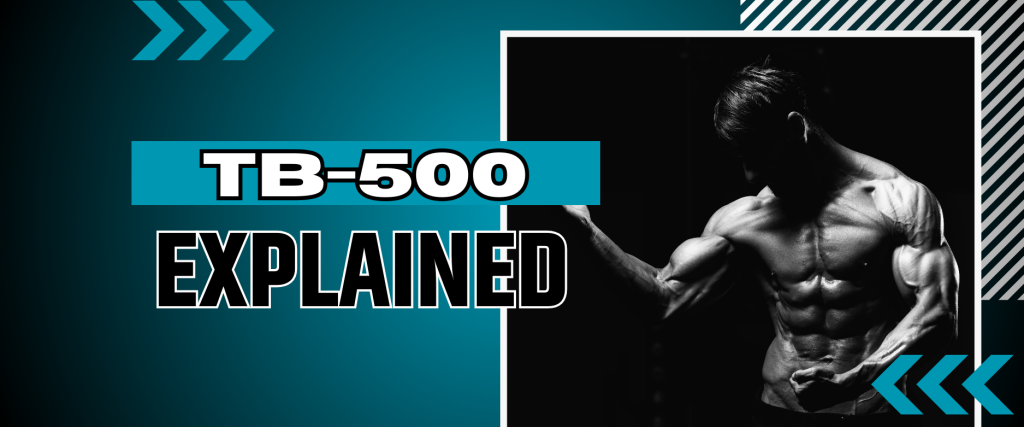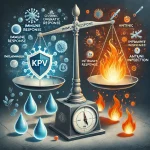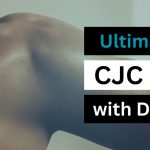Disclaimer: All articles and information available on this website are for educational purposes only.
If you’re a researcher who commonly uses BPC 157 in your studies or a bodybuilder and/or fitness enthusiast, chances are you commonly hear TB 500.
Thymosin Beta 4, most commonly known as TB 500, is a synthetic version of a naturally occurring peptide that most humans and animals have in their bodies. This peptide is closely associated with promoting overall healing in the body.
The benefits of TB 500 may include accelerating healing and recovery, reducing joint and tissue inflammation, and encouraging hair growth.
There may be other effects we do not know yet as current TB-500 research has only been extensively conducted on horses and limited human studies.
What Does TB 500 Do?
https://www.facebook.com/groups/sarms.peptides.nootropics/permalink/1502333087288750
To save you time from reading, TB 500 primarily helps in repairing the body.
According to studies, Thymosin Beta 4 primarily affects the thymus gland’s cell structure. The thymus is responsible for regulating the immune system and facilitating tissue repair, but it may deteriorate as we get older.
TB 500 helps in rejuvenating the thymus by influencing a protein called actin. This protein is a vital component in most cell structures and movement and makes up 10% of the total proteins in a cell – found in all types of tissues and cells except red blood cells.
When actin functions properly, it can result in what’s called actin polymerization, which leads to the formation of filamentous actin. This process can result in cellular regeneration, which can aid in tissue repair.
TB 500 binds to and isolates these actin filaments, creating a therapeutic effect that inhibits inflammation, scarring, and cell death and promotes muscle repair, wound healing, and even improves blood flow, cell migration, and proliferation thanks to its angiogenic properties.
What is TB 500 Used For?
Due to this healing potential, researchers often stack TB 500 with BPC 157 as they have complementary mechanisms of action and possibly because growth hormone may help in enhancing tissue repair.
Some researchers also add growth hormone secretagogues like CJC 1295 to the stack as both TB 500 and BPC 157 have complementary mechanisms of action and possibly because growth hormone may help in enhancing tissue repair.
TB 500 Benefits
Existing animal studies suggest that TB 500 promotes a wide range of beneficial effects, including wound healing, bone remodeling, and growth after fractures.
It also aids in the healing of heart muscle following a myocardial infarction (heart attack) and improves neurological outcomes after stroke or brain damage. Here are some of the benefits:
Note: some studies may reference TB 500 as thymosin beta 4.
TB 500 for Wound Healing
Based on numerous studies, TB 500 may help in accelerating injury healing. Injuries that would take several months to heal can be expedited with this peptide.
According to a 2010 animal study, TB 500 may improve and even accelerate collagen structure, which can improve wound healing while reducing scarring.
In the study, researchers applied thymosin beta 4 to incision wounds on rats and kept a separate control group for comparison.
Upon closer inspection, the researchers discovered that scarring was reduced in wounds treated with thymosin beta 4, with tighter collagen fibers compared to the control group.
In a 2010 clinical trial determining the effect of thymosin on venous ulcers (poor blood flow in the leg veins), the researchers discovered that a 0.03% dose of thymosin beta 4 (exact doses are unknown) improved wound healing rate in about 25% of the subjects, helping them achieve complete wound healing within 3 months.
TB 500 for Muscle Recovery
Research shows that TB 500 can aid in both skeletal muscle and cardiac muscle. In a 2010 animal study, 150 µg doses of Tβ4 were administered to mice twice a week for 6 months.
After the conclusion of the study, researchers discovered that administering thymosin beta 4 improved skeletal muscle fiber generation in mice with dystrophin deficiency, a protein that is essential for maintaining the structural integrity of muscle fibers.
This suggests that TB 500 has potential therapeutic applications in human trials.
TB 500 for Bone Health
TB 500 can also improve bone health. According to a 2014 study published in the Journal of Orthopaedic Research,
In the study, mice received a bilateral fracture to the fibula. Subsequently, they were split into two groups: a control group receiving saline solution and a treatment group receiving thymosin beta 4 treatment every 3 days.
Researchers analyzed fracture healing at 2 weeks, 3 weeks, then 6 weeks post-injury.
After thorough analysis, they also found that thymosin beta 4 had a healing effect on bone fractures, strengthening the bone durability of 41% of the subjects, increasing bone density, and enhancing bone calluses by 25% compared to the control group.
These findings suggest that TB 500 can help stimulate bone formation, strengthen bones, and enhance fracture healing – all of which may have potential applications in human trials.
TB 500 for Heart Health
As TB 500 has angiogenic properties, the peptide can encourage endothelial cells to migrate and proliferate. This physiological reaction can help promote blood vessel and cartilage growth.
According to a 2016 study, thymosin beta 4 “improved left ventricular function and reduced cardiac remodelling.”
The peptide can also improve cell survival and activate epicardial progenitor cells (cells that help repair the damage by turning into the necessary cells) while reducing inflammation. However, prolonged administration may result in your epicardial layer getting bigger.
In another study, researchers found that thymosin beta-4 promotes capillary tube formations and encourages the heart muscles to regenerate, preventing heart cell deaths after injury.
While these findings are based on animal studies, thymosin beta-4 may have potential therapeutic effects in human applications.
TB500 Brain Health
While scientifically proven methods in improving brain health may only be achievable through good diet and exercise, emerging animal studies suggest that TB 500 may have a positive impact on this area:
A 2014 animal study seems to suggest that thymosin beta 4 can promote cells in the nervous system to become more responsive to brain-related injuries. In this study, researchers discovered that thymosin beta 4 can activate oligodendrocytes – cells that keep neurons healthy.
In a 2013 comparative study on the effects of thymosin beta 4 with saline treatment, thymosin beta 4 helped:
- Protect brain cells in the hippocampus from dying
- Promote the growth of new blood vessels and brain cells in the injured areas of the brain
- Increase oligodendrocyte production
- Improve recovery of movement and coordination as well as learning and memory abilities.
TB 500 may also have potential therapeutic effects on strokes, but further studies are needed to confirm its efficacy. According to a 2015 paper, thymosin beta 4 may have a “restorative effect” on neural injuries such as strokes as they can improve blood vessel and neural growth – suggesting that it could potentially aid in the recovery process.
TB 500 for Hair Growth
While research on the effects of TB 500 on hair growth is still limited, we believe that these two studies are really promising prospects:
- In a 2010 study analyzing the effect of thymosin beta 4 in transgenic mice, the researchers observed that the peptide accelerated hair growth.
- In another study published in 2015, The results show that in mice that had higher levels of thymosin beta 4, their hair grew back faster after being shaved while mice that lacked this peptide grew hair back slower.
TB 500 Side Effects
According to several animal and human studies, TB 500 is generally safe and well-tolerated among research subjects.
However, potential side effects may arise from the administration method, such as temporary redness, irritation, or pain at the injection site, as well as mild fatigue, headaches, and hot flashes.
TB 500 Dosage
The dose you get will vary on your injury and how fast it heals. According to dosing recommendations we found online, initial doses would be around 4-10 mg for 1-2x per week.
An online review followed this routine and underwent 5mg doses twice a week for 30 days. At the end of week 5, the researcher was back to his pre-injury state and found no pain in all their movements.
While this review found that TB 500 was a total success, we highly recommend checking with your doctor first as they are the foremost authority to recommend the dosage.
Verdict
If you’re a researcher seeking faster recovery and improved overall health, TB 500 could be a valuable option for your researcher.
TB 500 can accelerate healing without significant adverse side effects, as it is generally safe and well-tolerated in most studies. However, before using TB 500, we recommend consulting with your doctor to determine its suitability for your research.
If you have questions, don’t hesitate to comment down below! We love answering questions, and this is the best way to reach us.
FAQ
How long is TB 500 detectable in urine?
TB-500 can be detected in urine for a period of up to 72 hours after administration.
Is there a link between TB 500 and testosterone?
According to a report by the World Anti-Doping Agency (WADA) on TB 500, there is no link between the peptide and increased testosterone levels.
Is TB 500 a steroid?
No, TB 500 is not an anabolic-androgenic steroid; it is a synthetic version of thymosin – a peptide hormone. Furthermore, TB 500 is deemed much safer compared to anabolic steroids and does not feature the same side effects as them.
Are there TB 500 capsules for sale?
https://www.facebook.com/groups/sarms.peptides.nootropics/permalink/1480424512812941
TB 500 capsules do exist, but it can be tough to find a compounding pharmacy or research compound store to have them as these capsules have to be made in the gut before they become orally bioavailable – this can make them quite limited in terms of available stock.
Furthermore, orally administered TB 500 may not be as potent as other forms because your liver will undergo a process called the “first-pass effect.” Here, liver enzymes break down and metabolize the capsules to protect the body from potential poisoning before they can enter your body circulation.
The only way to successfully ingest orally administered TB 500 is to take it in much higher doses, which can be impractical due to its limited stock. So, the most cost-efficient method of administration is through subcutaneous injections.
There are plenty of research compound stores selling TB 500, but we particularly like Triggered Brand as they have both high Trustpilot ratings and raving reviews in one of the Facebook Groups we’re in.
Should You Get TB 500 or BPC 157?
https://www.facebook.com/groups/sarms.peptides.nootropics/permalink/1529869957868396
Both BPC 157 and TB 500 are stacked together because not only are they naturally present in our bodies (BPC 157 in the gut and TB 500 in our cells), but they also have similar functions to one another.
With this in mind, we highly recommend stacking them together rather than using them standalone, as they will allow you to heal faster and better.
For example, let’s say your research subject trains their body 5 times a week. If they’re able to heal their body and become even more resilient in a shorter amount of time, this allows them to constantly push themselves and train at a higher level.
https://www.facebook.com/groups/sarms.peptides.nootropics/permalink/1529252184596840
However, if you’re a fairly new researcher who would love an honest recommendation, BPC 157 is more effective on acute injuries while TB 500 focuses on chronic injuries.
We highly recommend starting with BPC 157 as it’s more commonly available in oral capsule form when compared to TB 500.







